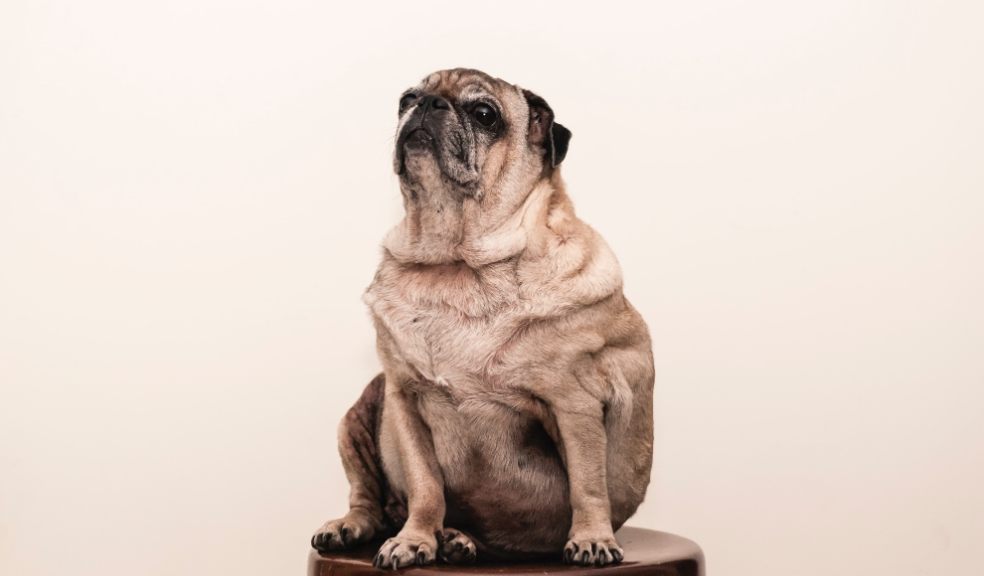
42% of dogs are overweight - here’s how to get your pet back into shape
A new study carried out by tails.com has revealed the scale of the overweight epidemic in dogs in the UK, with 42% of the dogs joining their service being overweight or obese.
Worryingly, the research has shown that obese dogs have shortened life spans by up to a year. That's why the team of specialists at tails.com have shared their top tips to getting your dog back into shape.
The full content is available below or in a Google Document format on request.
How to help you dog get back in shape
We can all be guilty of a little overindulging now and then, whether it’s an extra biscuit or an extra helping of dessert. But when those over indulgences lead to quite a bit of weight gain, we can put ourselves at risk of damaging our health. Just as it is for humans, obesity in dogs is also a health risk. If you think your dog needs a little help to get back into shape, here’s what you need to do:
Get everybody on board
First of all, everyone in your house needs to be on board. It’s no good if only one of you is taking the diet seriously, whilst others continue to feed treats! Try creating a feeding chart so that when your dog has been fed their meals and daily treat, everyone in the house knows too.
Swap out treats for attention
A good rule of thumb to remember is: treats shouldn’t make up more than 10% of a dog’s daily calorie intake. The occasional treat can be good for your dog when combined with training or if given for a nutritional benefit. When treats become too much of a regular occurrence, they can contribute to weight gain and for many dogs, it’s actually the attention that they appreciate more than the treat itself. So when they turn those puppy dog eyes on you, swap the usual treat for an affectionate scratch, cuddle or play time session.
Increase exercise
Every healthy dog should be able to manage at least 20 minutes of walking, twice a day. Getting out and about for walks doesn’t just provide your dog with the physical exercise they need, it also provides mental stimulation. If you’re looking to get your dog into shape, begin by gradually increasing the length of their usual walk by an extra 5-10 minutes each week. If your dog is already fairly active, try changing their usual exercise routine and adding other exercises like swimming. Swimming is a great way for a dog to exercise without putting any excess stress or strain on their joints, but not all dogs are built for it. Read our tips for taking your dog swimming.
Change or review your dogs diet
For some dogs, it’s simply the lack of exercise that contributes to their weight gain. For others, however, they may require a change in diet. This could mean looking at a low fat, high fibre diet to help your dog stay fuller for longer with fewer calories or simply tweaking the amounts or type of treats they usually get each day. If you’re prone to overfeeding, you may need to reassess your dog’s portion sizes.
If you feed human foods to your pet occasionally, you should consider cutting this out too as this has a big impact on a dog’s’ weight – more so than you might expect!
What if they are still hungry?
If your dog is used to eating bigger portions, it’s likely that extra bit of food will be missed when it’s reduced. The body soon adapts, however, and as we mentioned earlier, it’s the attention that comes with the feeding that can be more satisfying for your dog than the food itself.
What are the risks of your dog being overweight?
Obesity in dogs can lead to a number of further problems, including:
• Arthritis
• Diabetes
• Heart problems
• High blood pressure
• Respiratory issues
• Increased risk of developing certain tumours
• Higher risk should your dog need anaesthetic during surgery
• Lower quality of life
• Shorter life expectancy
Feeding the right amount of high-quality food to keep your dog at the correct weight can expand their lifespan by up to two years. A healthy dog is a happy dog, and life will be far more enjoyable for the both of you if you’re both in shape.













